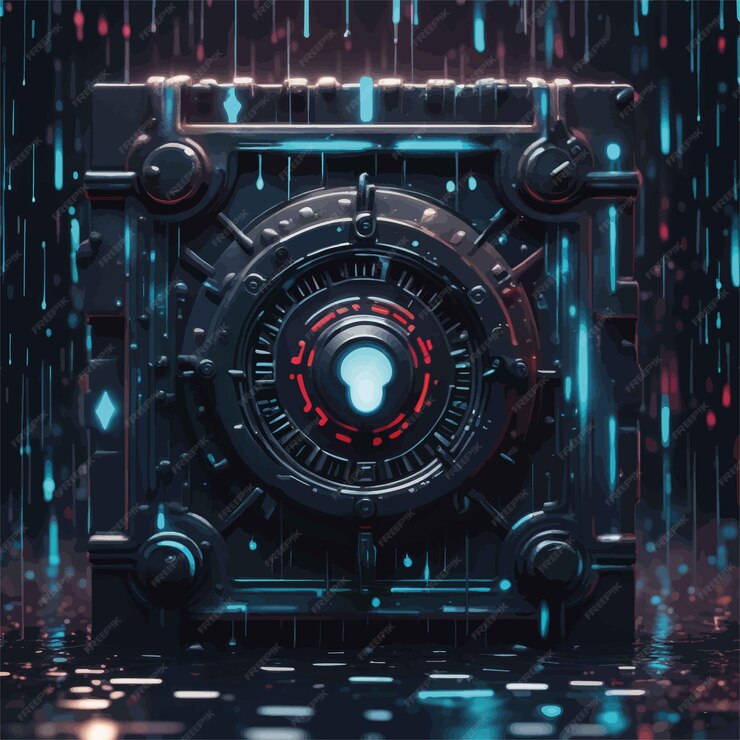Erothtos has emerged as a fascinating subject in the realm of modern literature, captivating readers and scholars alike. With its roots deeply embedded in ancient mythology, this genre offers a unique lens through which we can explore human emotions, relationships, and society’s struggles. As we dive into the intricate layers of Erothtos, we’ll uncover its rich symbolism and themes that resonate even today.
But what is it about Erothtos that continues to draw attention? Perhaps it’s the way it intertwines timeless narratives with contemporary issues. Or maybe it’s the bold exploration of love and desire that challenges societal norms. As we journey through this blog post, you’ll discover how Erothtos not only reflects our past but also shapes our understanding of modern life.
Join us as we unravel the complex tapestry of Erothtos—a literary phenomenon that remains relevant in an ever-changing world.
The Influence of Mythology in Erothtos
Mythology weaves a rich tapestry in the works of Erothtos. Ancient tales come alive through modern interpretations, creating an intricate blend of past and present.
Erothtos often draws inspiration from classical myths, reimagining them for contemporary audiences. Characters that once roamed ancient landscapes find new life within urban settings, reflecting today’s complexities.
The interplay between gods and mortals remains a focal point. These narratives explore human emotions, desires, and struggles—timeless themes that resonate deeply with readers.
Symbolism is prevalent as well. Each mythic reference serves as a mirror to society’s current dilemmas or aspirations. By doing so, Erothtos establishes connections across generations.
Through this lens, mythology transcends its origins. It becomes not just storytelling but also an exploration of identity and existence in our fast-paced world—a reminder of how interconnected humanity truly is.
Themes and Symbolism in Erothtos
Erothtos weaves an intricate tapestry of themes and symbolism that resonates deeply with readers. Love, in its myriad forms, stands at the forefront. It explores passion’s duality—its beauty and pain.
Nature frequently appears as a powerful symbol in Erothtos’ narratives. The changing seasons reflect emotional transitions, mirroring characters’ inner struggles. This connection to nature often evokes a sense of longing or nostalgia.
Another prominent theme is identity. Characters embark on journeys of self-discovery, grappling with societal expectations versus personal desires. Their quests reveal hidden truths about themselves and humanity.
Conflict serves as a catalyst for growth within these stories. Each struggle propels characters toward enlightenment, pushing boundaries while exploring moral dilemmas.
Through layered symbolism, Erothtos encourages readers to examine their perspectives on love, identity, and the human experience itself—a distinctive hallmark of his literary genius.
The Impact of Erothtos on Modern Literature
Erothtos has left an indelible mark on modern literature, reshaping narratives and character development. Its influence can be seen in the way contemporary authors approach complex emotions and relationships.
Writers draw inspiration from Erothtos’ unique blend of mythological elements with everyday life. This fusion allows for deeper storytelling that resonates with readers on multiple levels.
The exploration of identity, love, and sacrifice as presented by Erothtos encourages writers to push boundaries. They challenge traditional storytelling techniques, paving the way for innovative forms of expression.
Readers today find themselves captivated by this fresh perspective. The themes woven into Erothtos’ works feel relevant in our fast-paced world where connections are often fleeting yet profound.
As modern literature evolves, the echoes of Erothtos continue to inspire a new generation of storytellers eager to explore uncharted territories in their writing journey.
Criticisms and Controversies Surrounding Erothtos
Erothtos has stirred a fair share of debates among literary critics and enthusiasts. Some argue that the themes explored in works can be overly provocative, pushing boundaries that make readers uncomfortable.
Others take issue with the portrayal of certain characters, claiming they perpetuate stereotypes rather than challenge them. This criticism sparks discussions about representation and responsibility in storytelling.
Moreover, Erothtos’ unique narrative style often divides opinion. While some appreciate its innovation, others find it convoluted or difficult to follow.
The controversies surrounding Erothtos also extend to public events and collaborations. Instances where authors have distanced themselves from due to differing viewpoints fuel ongoing discussions about artistic integrity versus personal beliefs.
These varying perspectives add depth to understanding but also reflect broader societal tensions within modern literature today.
The Relevance of Erothtos in Today’s Society
Erothtos holds a mirror to the complexities of contemporary life. Its themes resonate with our struggles, desires, and aspirations. The characters often embody the quintessential human experience, making their journeys relatable.
In an age dominated by technology and social media, reminds us of the raw emotions that underpin human connection. It encourages readers to reflect on their relationships and societal roles.
Moreover, Erothtos challenges cultural norms and conventions. This provocation sparks necessary conversations about identity and belonging in a rapidly changing world.
The narratives woven through works invite introspection while promoting empathy among diverse audiences. It’s this blend of personal insight and broader social commentary that ensures its relevance today.
Engaging with Erothtos allows us to confront our truths while navigating modern dilemmas with greater awareness and understanding.
The Timelessness of Erothtos in Literature
Erothtos embodies a timeless quality that resonates across generations. Its exploration of universal themes ensures it remains relevant, regardless of the era. Readers find themselves reflecting on love, loss, and identity—concepts that transcend time.
The narrative style employed within Erothtos invites readers to immerse themselves deeply in its world. This unique blend keeps audiences engaged while prompting insightful discussions about human experiences.
Moreover ability to weave mythology into modern storytelling adds layers of complexity. It sparks curiosity about cultural roots and shared histories among diverse communities.
As new voices emerge in literature, they often draw inspiration from the foundational elements present in Erothtos. This interconnectivity highlights how past works can influence contemporary storytelling methods and themes.
In many ways, serves as both a mirror and a beacon for writers seeking guidance or solace in their creative journeys. Its enduring presence shapes literary landscapes today and beyond.
Themes and Characteristics of Erothtos Works
Erothtos works are rich in emotional depth and complexity. They often explore the intricacies of love, longing, and human connection. Characters grapple with their desires, reflecting a deep introspection that resonates with readers.
Another prominent theme is the tension between tradition and modernity frequently juxtaposes ancient myths against contemporary settings. This creates a dialogue that challenges societal norms while preserving cultural heritage.
Symbolism plays a crucial role as well. Objects or events in ‘ narratives carry layered meanings, inviting analysis from various perspectives. Nature serves as both backdrop and character, embodying emotions like passion or despair.
The writing style itself stands out—lyrical yet accessible. The prose flows smoothly, drawing readers into each world crafted by Erothtos’ pen. Through these themes and characteristics, his works remain compelling across generations.
Impact of Erothtos on Contemporary Literature
Erothtos has undeniably shaped contemporary literature, inspiring a new generation of writers. The fusion of myth and creativity in works encourages authors to explore deeper themes within their narratives.
Many modern novels reference Erothtos’ characters, drawing parallels between ancient struggles and today’s societal issues. This connection makes the stories resonate with readers on multiple levels.
Moreover, the stylistic choices made by have influenced literary techniques, pushing boundaries in prose and poetry alike. Writers are now more inclined to experiment with form and structure as they embrace ambiguity and complexity.
The exploration of human emotions through an lens provides fresh perspectives on familiar tales. As this influence continues to ripple through literary circles, it ignites discussions about identity, love, and morality that remain relevant across generations.
Controversies Surrounding Erothtos’ Work
Erothtos’ work has not been without its critics. Some argue that his narrative style can be polarizing. Readers either find it deeply engaging or frustratingly obscure.
The themes he explores often challenge societal norms, leading to heated debates about morality and ethics. This confrontation with established beliefs attracts both admiration and backlash.
Furthermore, the portrayal of certain characters has sparked discussions regarding representation. Critics say some depictions fall into stereotypical traps rather than offering nuanced perspectives.
Additionally, interpretations of mythology have raised eyebrows. His reimagining of ancient tales sometimes clashes with traditional views, sparking concerns among purists who value historical accuracy over creative liberty.
These controversies keep the conversation alive around contributions to literature, ensuring that his work remains a topic of vibrant discussion within literary circles today.
The Future of Erothtos in Literature
The future of Erothtos in literature holds exciting possibilities. As new generations of writers draw inspiration from this complex figure, we can expect fresh interpretations and innovative storytelling techniques.
Digital platforms are reshaping how literature is consumed. This shift may lead to a resurgence in related narratives that engage audiences through interactive experiences or multimedia formats.
Moreover, themes explored by Erothtos—love, identity, and the human condition—remain ever-relevant. Contemporary issues will likely influence future works inspired by his legacy.
Emerging voices from diverse backgrounds could offer unique perspectives on traditional motifs. This expansion of viewpoints promises to enrich literary discussions around his work.
As scholars continue to analyze and critique these narratives, debates about their significance will spark further interest among readers and writers alike. The evolution of is just beginning; its trajectory remains an open canvas for creativity.
Conclusion
Erothtos stands as a unique pillar in modern literature, merging ancient themes with contemporary relevance. Its influence can be felt across genres and styles, inspiring numerous authors to explore the depths of human emotion.
The discussions it sparks are vital for literary growth and understanding. invites readers to engage with complex symbols and motifs that resonate deeply within today’s societal context.
As we move forward, the legacy of Erothtos will continue to evolve. New interpretations will emerge, ensuring its place in future narratives and explorations.
By embracing both its challenges and triumphs, enriches our appreciation for literature’s capacity to reflect life itself. The journey through its pages is one that promises discovery at every turn.
FAQs
Erothtos has captivated audiences for generations, intertwining themes of love, identity, and the human experience. As we explore its relevance within modern literature, questions naturally arise. Here are some frequently asked questions to shed light on this intriguing subject.
What is Erothtos?
Erothtos refers to a rich body of work that delves into complex emotional landscapes through characters often shaped by mythological influences.
How does mythology influence Erothtos?
Mythology provides a framework for exploring timeless human emotions and conflicts in Erothtos works. It serves as both inspiration and backdrop for narratives that resonate deeply with readers.
What are the main themes found in Erothtos literature?
Common themes include love’s duality, self-discovery, transformation, and the struggle between fate and free will. Symbolism plays a crucial role in illustrating these concepts.
How has Erothtos impacted contemporary writers?
Many modern authors draw upon the tropes established by Erothtos while infusing their unique perspectives. This cross-pollination enriches today’s literary landscape.
Are there any notable criticisms surrounding Erothtos’ works?
Critics often point to potential over-reliance on archetypes or argue that certain interpretations can seem outdated. However, debates around such issues only serve to deepen engagement with the texts.
Why is understanding Erothtos important today?
In an era where personal identity and connection are at the forefront of cultural conversations, exploring how love and self-identity manifest through literature offers valuable insights into our own lives.
Will future generations continue to engage with Erothtos?
As long as humanity grapples with fundamental truths about existence and emotion, works inspired by or related to Erothtos will remain relevant—inviting new readers into its rich narrative tapestry for years to come.











